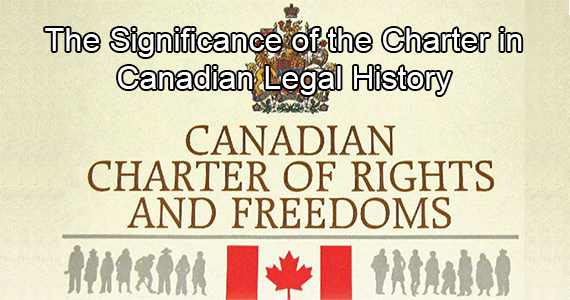Top Down Betrayal
An American court held individual council members personally liable for complicity in a $3.9 million award to a couple for "threats, harassment, and intimidation in a dispute with their condo association". If Canada put teeth in the law like the Americans do strata life in BC would be so much better than it is. https://associationevaluation.com/3-9-million-reasons-why-bully-boards-need-to-shape-up/?fbclid=IwAR2wTi3TiB5uheJSgynaG79S2GI_c79WrlNqNt3c8l13dUsT1nFtJCXFmMM

I have identified at least 5 systemic barriers that prevent equitable access to justice in BC.
- Interpreting limitation dates to bar relief from unlawful acts to those who cannot save up enough money within a 2-year time period to cover litigation costs or otherwise meet the requirements to take a matter to trial, especially when the high cost of trial is inappropriate.
- Disrespecting medical confidentiality while promoting litigation privilege that provides for withholding material evidence; contrary to telling the truth, the whole truth, and nothing but the truth.
- Legal fiction expertly crafted to manufacture deception and avoid applying black letter law, often in unreasonable deference to those in power, so that statutory interpretation and plain language cannot be trusted or relied upon.
- Preposterous views that a victim will have the money for a Charter claim, or that justice requires the innocent victim to suck up perpetual damage so that others can profit from their own wrongs when it is not practical for the victim to bring the matter to trial.
- Cost awards; particularly against reluctant self-represented plaintiffs attempting to defend against their legal rights being trampled by those more powerful.
- Judicial immunity and lower duties and standards of care for legal professionals who act in inherent conflicts of interest ranging from bias, to convenience, to their own profit, causing foreseeable, easily avoidable damage to the law and others.

Two peasants brothers were each left with a parcel of land by their late father. In between two parcels of land was a ditch. After they buried their father, one of the brothers asked the local lawyer to ensure that the ditch formed part of his parcel.
The next day, the other brother approached the same lawyer with the same request. The lawyer explained that he had a conflict because he was already acting on behalf of the other brother, but he offered to write a note to the lawyer in the next town asking him to act on his behalf.
When the lawyer in the other town read the note, it said:
The moral of the story: think twice before you start litigation because you may find yourself in a ditch!
In decades of work as a paralegal I have seen this to be very close to the truth too much of the time.
A good deal of strata strife comes from the top down, that is to say, from the legal profession down to hapless owners. The reality of the inherent conflicts of interest in professions needs to be recognized.
Judges too often administer statutes based on systemic bias, funding restrictions, or their own convenience rather than the letter of the law and a just society.
One of the most common examples is automatically barring claims for relief made more than 2 years after the date on which the right to do so arose.That is not in accordance with the new Limitation Act, which says:
Artificial people like corporations and insurance companies are in a position to make court proceeding an appropriate means to seek a remedy for claims of a correspondingly large nature. However, when it comes to recognizing who a person of flesh is, what they knew, and what is reasonable or appropriate for more modest claims or subject to this Act, adjudicators seem to be impaired by tunnel vision that sees little, if anything, beyond 2 years from the date of misconduct.
In BC, rather than granting equal protection under the law, judges earning hundreds of dollars an hour act like everyone has enough disposable income to pay legal fees up to 50 times more than the minimum wage. As the elite, they enjoy a privileged position, which I do not share, and neither does most of society.
Legal professionals are not blind and stupid. Lawyers and judges know, or ought to know, that for the rest of the population not in the top 20% of wealth, high legal costs make it unreasonable to consider a court proceeding an appropriate means to seek a remedy, particularly for smaller claims. Yet they routinely cite, with very rare exceptions, a contrived 2-year limitation period to forever bar the less fortunate from equal protection under the law against those who profit from their own wrongs.
The Criminal Code s.265 sets out assault as force intentionally applied to a person directly or indirectly without consent, or threats to apply force to a vulnerable person.
Even though BC's new Civil Resolution Tribunal ("CRT") pays lip service to the fact that "some claims don’t have limitation periods" and that the countdown might not apply at all for claims for assault of "people in dependent relationships" its decisions demonstrate little, if any, recognition of assault or dependency, and the tribunal threatens to dismiss a claim if it is deemed to be too cumbersome.
This willful blindness of legal professionals to what is appropriate I recognize as dirty deeds, done dirt cheap. It is a systemic travesty of justice that is unconscionable in a society with Canada's Charter of rights and freedoms.
With respect to integrity, or perverting justice to enrich legal professionals at the devastation of others, the following links sum up what is reasonable and appropriate in the eyes of the BC Law Society.
http://www.cbc.ca/news/canada/british-columbia/b-c-woman-may-lose-home-over-huge-lawyer-bill-1.1291889
https://www.theglobeandmail.com/news/national/catholic-order-sues-own-lawyers-after-winning-case/article687769/
https://www.thestar.com/news/canada/2009/09/16/liberal_senator_accused_of_bilking_missionaries.html
Labels: Charter of Rights









0 Comments:
Post a Comment
Subscribe to Post Comments [Atom]
<< Home